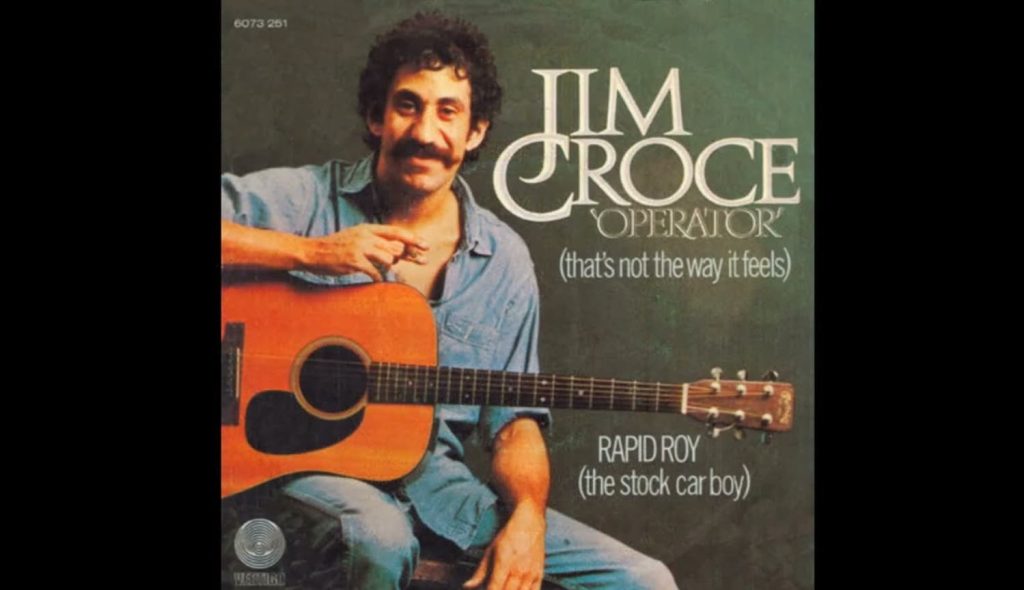
Jim Croce’s Heartfelt Classic: “Operator (That’s Not the Way It Feels)” – A Tale of Lost Love and Lingering Pain
Jim Croce, one of the most beloved singer-songwriters of the early 1970s, crafted a song that remains timeless in its emotional resonance with “Operator (That’s Not the Way It Feels).” Released on August 23, 1972, as the second single from his album You Don’t Mess Around with Jim, this poignant ballad quickly became a favorite among listeners, climbing to number 17 on the Billboard Hot 100 by December of the same year. Spending twelve weeks on the chart, the song solidified Croce’s reputation as a master storyteller in the folk-rock tradition.
At its core, “Operator (That’s Not the Way It Feels)” is a narrative driven by a one-sided conversation with a telephone operator. The protagonist, in a moment of vulnerability, attempts to track down his former lover who has moved to Los Angeles with his former best friend. The song’s lyrics, steeped in melancholy and regret, beautifully capture the complexity of human emotions when faced with betrayal and the lingering heartache that follows.
The story told within the song was inspired by Croce’s own experiences during his military service. While stationed on a base, he observed soldiers waiting in long lines to use the outdoor payphone, many of them anxious to call home and confirm the devastating news they had received in Dear John letters. This real-life observation lent authenticity to the song’s narrative, making the pain and desperation of the protagonist all the more palpable to the listener.
Musically, the song is a perfect blend of Croce’s smooth, folksy vocals and gentle acoustic guitar work, creating a sound that is both soothing and sorrowful. The simplicity of the arrangement allows the lyrics to take center stage, drawing the listener into the story being told. This focus on storytelling through song was something Croce excelled at, and “Operator (That’s Not the Way It Feels)” is a prime example of his talent in this regard.
Critics at the time recognized the strength of the song’s storytelling, with Record World describing it as a “strong story-telling tune in the Chuck Berry ‘Memphis’ vein,” and noting the near-perfect match between the singer and the song. Cash Box also highlighted the lyrical content, drawing comparisons to James Taylor’s style, emphasizing how the protagonist’s journey to contact his lost lover is laden with emotional depth.
As the song unfolds, the protagonist’s resolve begins to crumble. Initially determined to show that he has moved on from the betrayal, he ultimately confesses to the operator that he has not. The moment of vulnerability peaks when, after receiving the phone number he requested, he is unable to read it due to the tears in his eyes. In a final act of surrender, he asks the operator not to place the call, acknowledging his emotional defeat with the line, “you can keep the dime.”
“Operator (That’s Not the Way It Feels)” stands as a testament to Jim Croce’s ability to convey profound emotion through song. Its enduring popularity is a testament to its universal themes of love, loss, and the human condition, making it a cherished piece of music history that continues to resonate with listeners of all ages.